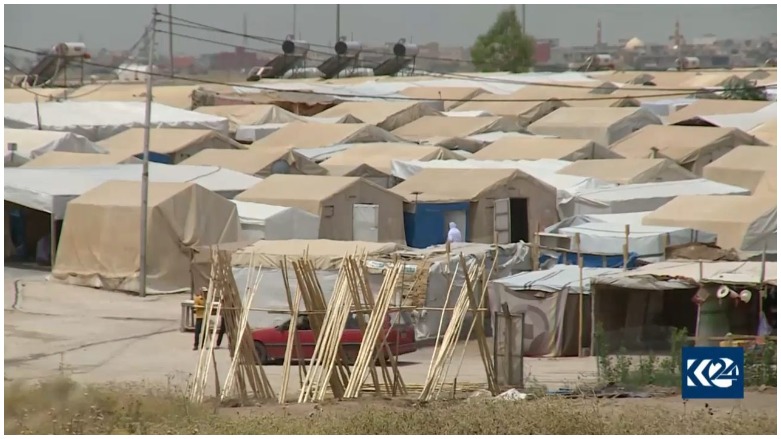Camps to remain open in the Kurdistan Region: official
"Here we confirm that the KRG will continue to accommodate IDPs & refugees, and camps will remain open."

ERBIL (Kurdistan 24) – Refugee and internally displaced persons (IDP) camps in the Kurdistan Region will remain open, tweeted Lawk Ghafuri, the Head of Foreign Media Relations of the Kurdistan Regional Government (KRG) Council of Ministers, on Sunday.
Recently some reports claimed that the camps in KRG will be closed, here we confirm that the #KRG will continue to accommodate IDPs & refugees, and camps will remain open.
— Lawk Ghafuri (@LawkGhafuri) March 6, 2022
Currently, Kurdistan Region is home for more than 900,000 IDPs & Refugees in the camps & outside the camps.
"Recently some reports claimed that the camps in KRG will be closed, here we confirm that the KRG will continue to accommodate IDPs & refugees, and camps will remain open," read Ghafuri's tweet.
"Currently, Kurdistan Region is home for more than 900,000 IDPs & Refugees in the camps & outside the camps," he noted.
In mid-October 2020, the federal government announced a plan to close displacement camps in the country.
The KRG said camps in the Kurdistan Region would remain in operation for as long as they were needed. However, it said it required increased international funding to do so.
The necessities for many residents of these camps are provided by the UN, various international organizations, and the Iraqi government. Still, most of the costs are covered by the KRG.
On Saturday, the General Director of JCC (Joint Crisis Coordination Centre) and the Director of Immigration and Crises Response in Duhok governorate welcomed Nicole Epting, Deputy Director of UNHCR in Iraq, and Guenolin LeCosta, director of the UNHCR office in Duhok.
The General Director of JCC, along with Director of Immigration and Crises Response in Duhok governorate welcomed Ms. Nicole Epting, Deputy Director of UNHCR in Iraq. and Ms.Guenolin LeCosta director of the UNHCR office in Dohuk.https://t.co/DASrLdKEaQ pic.twitter.com/YtuvMdo1wV
— JCC_KRG (@JccKrg) March 6, 2022
During the meeting, they underlined that efforts should continue to help refugees in the Kurdistan Region, especially in the Duhok governorate, where many refugees live.
Read More: More than 900 Syrian refugees arrive in Kurdistan Region
In early January 2022, more than 900 Syrian refugees arrived in the Kurdistan Region after leaving northeastern Syria for economic and security reasons.